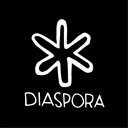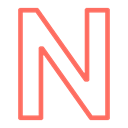Manyverse Alternatives: Discover Your Next Decentralized Social Network
Manyverse stands out as a unique social network application, leveraging the SSB protocol (Secure Scuttlebutt) to offer a truly decentralized experience. Unlike mainstream platforms, your data remains on your phone, eliminating the need for logins, corporate data ownership, ads, and tracking. It's a breath of fresh air for those prioritizing privacy and control. However, the world of decentralized social media is vast, and there are many excellent Manyverse alternatives available that might better suit your specific needs or offer different feature sets.
Top Manyverse Alternatives
If you're looking to explore other decentralized social network options that prioritize user privacy, open-source principles, or offer diverse functionalities, you've come to the right place. Below, we delve into some of the most prominent alternatives to Manyverse.

Mastodon
Mastodon is a prominent decentralized microblogging engine, offering a robust Manyverse alternative for those seeking a federated social experience. It's free and open-source, available on Web and Self-Hosted platforms, and boasts features like ActivityPub support, content warnings, and a strong focus on privacy and community moderation. Its decentralized nature means no single company controls your data, echoing Manyverse's core philosophy but on a broader scale.

Diaspora
Diaspora is another federated social networking service designed with privacy at its core, making it a compelling Manyverse alternative. As a free and open-source platform, it runs on Linux, Web, BSD, and can be Self-Hosted. It emphasizes user control over data, offers features like decentralized architecture, encrypted connections, and Markdown support, ensuring you share what you want, with whom you want.

While fundamentally different in its centralized approach, Facebook is a widely used free online social network connecting billions. Although it contrasts sharply with Manyverse's privacy-centric, decentralized model, it offers a vast user base, event management, and integrated chat across Windows, Web, Android, iPhone, and more. It's an alternative for those prioritizing mainstream connectivity over decentralized privacy.

Minds
Minds is a free and open-source social network that aligns well as a Manyverse alternative, particularly for those concerned with censorship and privacy. Available on Web, Android, and iPhone, Minds champions free speech, encrypted chat, and offers a unique gamification system with token rewards. Its decentralized elements and focus on user control resonate with Manyverse's core values.

Gab
Gab positions itself as a social network for free speech, making it a distinct Manyverse alternative for users prioritizing unfiltered communication. It's Freemium and open-source, accessible via Web, Android, and Self-Hosted platforms. Gab offers features like decentralized architecture, ad-free experience (for premium users), and privacy-focused settings, although its content policies differ significantly from Manyverse's community-driven moderation.

GNU social
GNU social, a continuation of the StatusNet project, is a free and open-source social communication software that serves as a strong Manyverse alternative for self-hosting enthusiasts. It's decentralized, ad-free, and supports free speech, providing a flexible platform for both public and private social networking. Its open-source nature aligns perfectly with Manyverse's commitment to user freedom.

Friendica
Friendica is a distributed social network with a strong focus on decentralization, privacy, and interoperability, making it a compelling Manyverse alternative. As a free and open-source platform for Linux, BSD, and Self-Hosted environments, it supports federated communication, group messaging, and integrations with other networks like Diaspora and Twitter, offering a broad reach while maintaining privacy.

ZeroMe
ZeroMe is a social network built on the distributed P2P network ZeroNet, offering a unique Manyverse alternative for those interested in peer-to-peer decentralized communication. It's free and open-source, available across Mac, Windows, Linux, and Web, and focuses on direct peer-to-peer connections, bypassing traditional server infrastructures, much like Manyverse's data-on-your-phone approach.

Nitter
Nitter, while not a full-fledged social network like Manyverse, is a free and open-source front-end mirror of Twitter with a strong emphasis on privacy. Available on Web, Chrome, and Firefox, it allows users to consult Twitter content without tracking or ads. For Manyverse users who appreciate privacy in content consumption, Nitter offers a similar ethos for Twitter content.

Pleroma
Pleroma is a free, federated social networking server built on open protocols, making it an excellent Manyverse alternative within the Fediverse. It's compatible with GNU Social, Mastodon, and other ActivityPub/OStatus platforms. Available on Web and Self-Hosted, Pleroma is ad-free, decentralized, and distributed, offering a lightweight yet powerful platform for social interaction.
The landscape of decentralized social networks is rich and diverse, offering compelling Manyverse alternatives for every preference. Whether you prioritize deep privacy, broad interoperability, or a specific feature set, exploring these options will help you find the social network that best aligns with your values and communication needs.